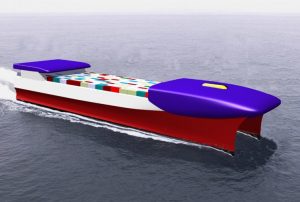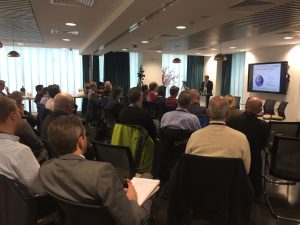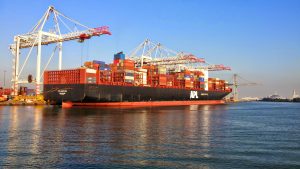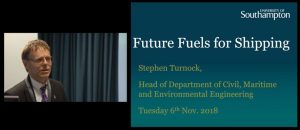
Looking to the future of how shipping can reduce its emissions of greenhouses gases and local pollutants such as NOx and SOx Professor Stephen Turnock spoke at an industry event recently organised by SC Group and chaired by Steve Austen. Other talks addressed the regulatory challenge of reducing emissions and in delivering diesel engines that are IMO Tier III compliant.

https://proteum.co.uk/videos/
The challenge for today’s ship designers are significant as the future direction of how ships will be powered is not clear. Work at Southampton has considered how best to apply Nuclear technology, possible methods of using hybrid power storage solutions in bulk carriers, and recently on the methods of energy management for hydrogen fuel cells powered vessels.

What is clear is that to tackle the problem will allow significant and rapid innovation. will we end in a world where electric motor are the prime units of motive power or will conventional engine technology but with new fuels such as LNG in the short term or Hydrogen in the long term. While the global emissions is an ever present challenge it is often the local air quality health related issues especially in port cities that appears to be driving the need for rapid change.

A recent undergraduate project used AIS data for month to evaluate over a month who much emissions of NOx, SOx and particulates were emitted due to all the ship movements within Southampton water. The AIS data allows the time and location as well as the likely amount of emissions to be estimated.
